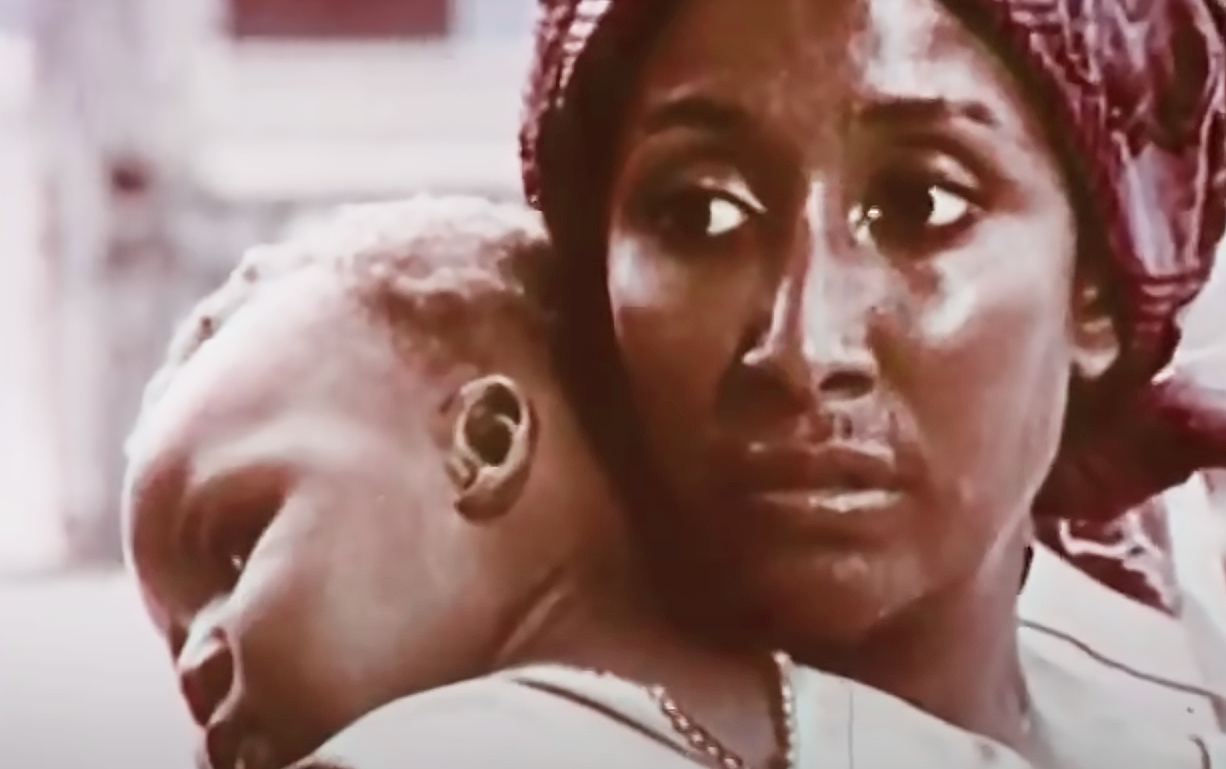Sarah Maldoror
Director
Biography
Guadeloupe / France
Sarah Maldoror was born in 1939 in Candou, France. A Guadeloupean of African descent, she is respectfully regarded as the matriarch of African cinema (she was the first woman of color to make a feature film). For her, filmmaking was a weapon for struggle and liberation from the very beginning of her experiences in cinema. Though before embarking on a career in filmmaking she co-founded the theatre group Compagnie d’Art Dramatique des Griots in Paris in 1956. She left the company in the early 1960s to study cinema in the Soviet Union at VGIK in Moscow on a scholarship—there she met Ousmane Sembène who was also studying at the time. Maldoror worked both as an assistant director and a director in Paris, Martinique, and Portuguese-speaking African countries. After residing briefly in Morocco in 1963, she went to Algeria to work as Gillo Pontecorvo’s assistant on the 1966 classic film, The Battle of Algiers, the prototype for all mainstream political cinema of the 1970s. Her 1968 debut film Monagambée, which examines torture techniques used by the French in the Algerian war, was selected for the Quinzaine des réalisateurs / Directors’ Fortnight at Cannes in 1971. The following year she made her emblematic œuvre, Sambizanga, which relates a woman’s experience during the Angola liberation struggle. The film shared the prestigious Tanit d’Or prize at the Carthage Film Festival that same year. Pioneer, trailblazer, mentor, Sarah Maldoror had this to say in an interview with Jadot Sezirahiga: “African women must be everywhere. They must be in the images, behind the camera, in the editing room and involved in every stage of the making of a film. They must be the ones to talk about their problems”. Maldoror's work is often included in studies of the role of African women in African cinema. Maldoror passed away in France in April 2020, at the age of 90, from COVID-19.
Filmography
Monagambée
(1968)
Des fusils pour Banta
(1970)
Sambizanga
(1972)
Saint-Denis sur Avenir
(1972)
Et les chiens se taisaient
(1974)
Aimé Césaire, un homme une terre
(1976)
Fogo, île de feu
(1979)
Un carnaval dans le Sahel
(1979)
Carnaval à San Vicente
(1979)
Carnaval en Guinée-Bissau
(1980)
Miró, peintre
(1980)
Le Cimetière du Père-Lachaise
(1980)
La Basilique de Saint-Denis
(1980)
Un dessert pour Constance
(1981)
L’Hôpital de Leningrad
(1983)
Un Sénégalais en Normandie
(1983)
La Littérature tunisienne de la Bibliothèque Nationale
(1983)
René Depestre, poète
(1984)
Toto Bissainthe, chanteuse
(1984)
Robert Lapoujade, peintre
(1984)
Alberto Carliski, sculpteur
(1984)
Le Racisme au quotidien
(1984)
Robert Doisneau, photographe
(1984)
Le Passager du Tassili
(1987)
Aimé Césaire, le masque des mots
(1987)
Louis Aragon, un masque à Paris
(1987)
Emanuel Ungaro, couturier
(1987)
Vlady, Peintre
(1989)
Léon G. Damas
(1995)
L’Enfant cinéma
(1997)
Alain Séraphine – La Tribu du bois de l’É
(1998)
Scala Milan AC
(2001)
La Route de l’esclave
(2003)
Les Oiseaux mains
(2005)
Eia pour Césaire
(2009)


